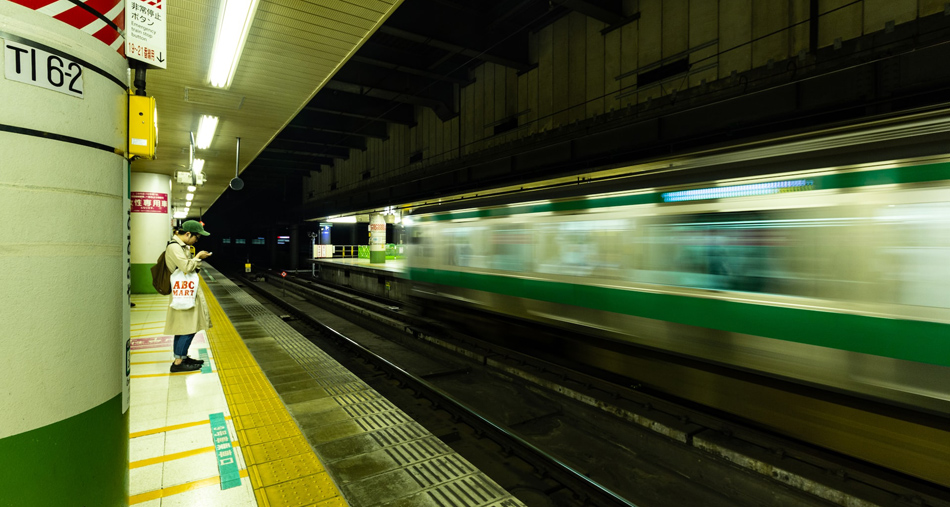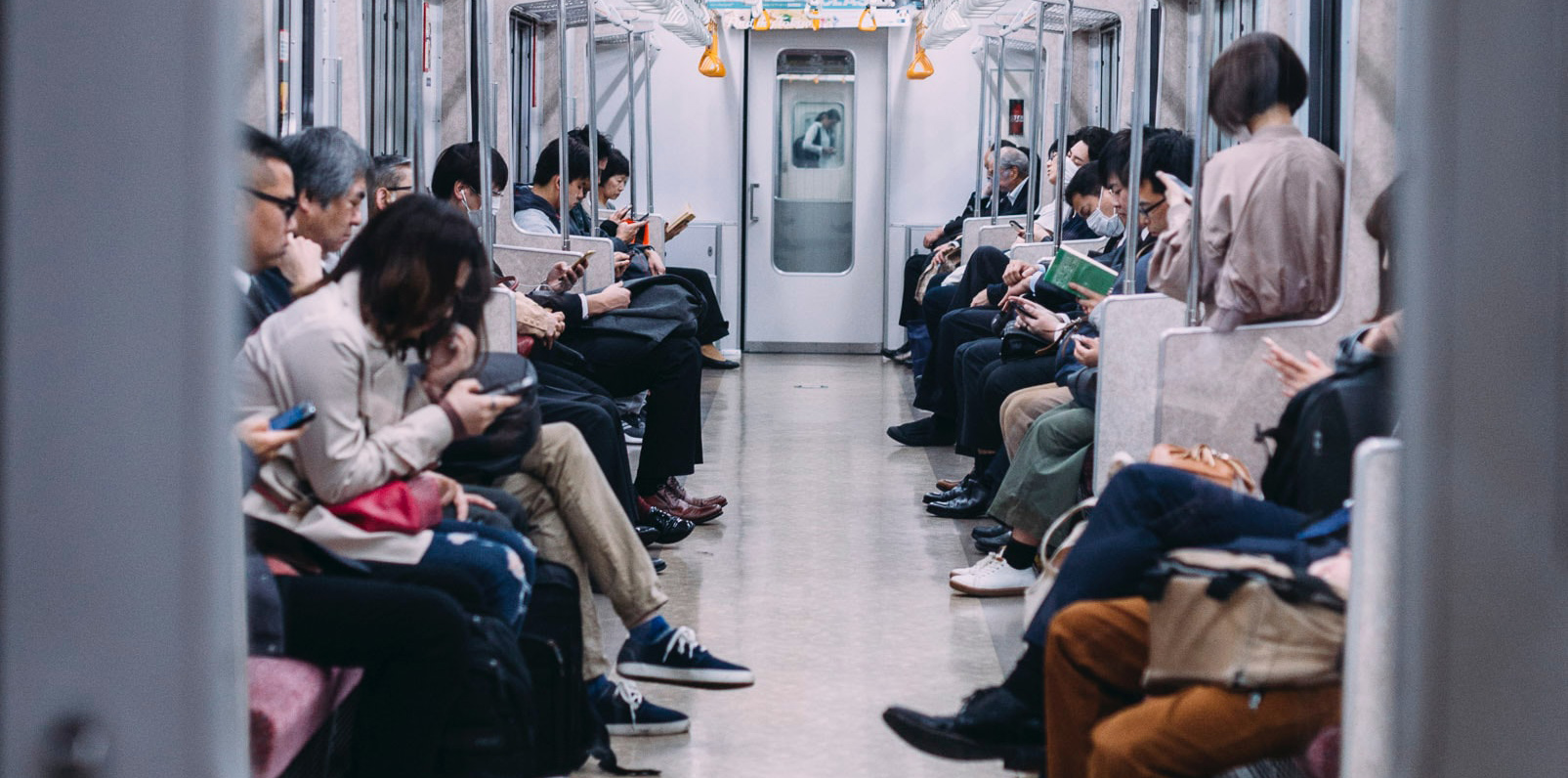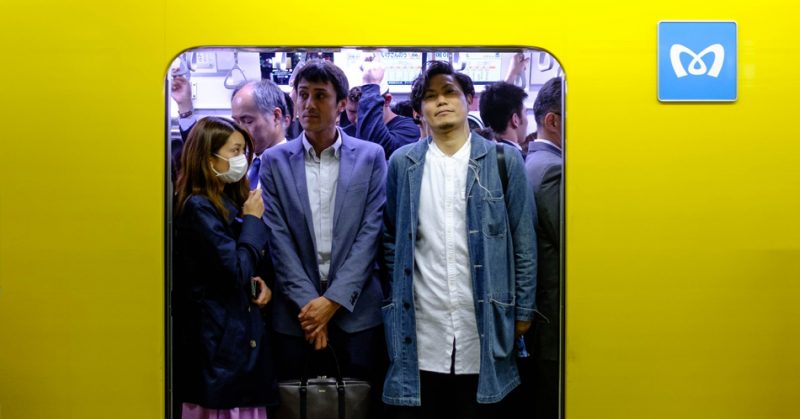Japan has been the trailblazer in many things, so it doesn’t come as a surprise to learn that it stood out in the world for being the first to lay its underground lines not only in the island nation but the whole of Asia as early as 1927. Ever since people have noticed the construction of extension lines to expand and buttress the network across all its cities and render them well-connected. Tokyo is certainly one of them. It has the country’s most sophisticated and extensive subway system which easily makes it the most preferred mode of transport in the city. On average, 8 million people commute on the subway every day, which is a massive number.
The punctuality with which the trains chug into the subway stations is exemplified. The reason why we notice such precision in timings is because the subway maintenance and inspections of track and tunnel infrastructure are executed systematically every day; minor damages are repaired promptly which forestalls unforeseen collapses, breakdowns, and indefinite service suspensions that could otherwise inconvenience millions of commuters and disrupt their schedules. Regular dismantling and maintenance of trains lengthen their lifespan and keep them new, functional, and safe.
Tokyo’s metro system has also embraced cutting-edge technology like artificial intelligence and cameras and applied high-tech solutions to resolve everyday commuter issues. Tokyo’s subway stations are notoriously crowded on any given day, and managing a record-breaking crowd like that becomes more effortless with the use of advanced technology, helping people to navigate their way through the exits seamlessly and avoiding accidents.
The subway trains in Tokyo are owned by the Tokyo Metro and the Toei Subway Company. All subway lines are color-coded with abbreviations for everyone’s convenience. If you are a foreigner in Tokyo who is availing of the subway service, do not worry about remembering the difficult-to-pronounce Japanese metro stations — just remembering the number of your stop will do.
If statistics are to be believed, there are approximately 150 rail lines in Greater Tokyo. Proper coordination and cooperation between technology, staff, and passengers ensure smooth operations and movement at the subway stations without any chaos despite an unreasonably high daily footfall. The stations are clean, safe, and well-monitored. Most stations have safety barrier doors installed to prevent the untoward.
Some years back you could buy tickets from the vending machines at the stations, but today you can conveniently use IC cards to travel on the subway. The subway stations are extremely kid-friendly and so with the differently-abled riders too. The operational hours of the Tokyo Metro are 5 am to midnight. Use the subway apps for easy travel.
The Japanese subway stations are orderly and one of the most disciplined in the world. People are sticklers for decorum and etiquette.
How to Report Lost Item on Tokyo Metro
Losing or dropping things in crowded spaces with so many people commuting every day, incidents of Lost and Found are rampant on the Tokyo Subway. In most cases, people find themselves back to their items in under an hour with an efficient system in place. Every month, around 10,000 lost things are retrieved either from the trains or the stations. Common things found are umbrellas, raincoats, and cash. If you are an overseas visitor new to Tokyo, and find the subway a tad bit overwhelming, this is what you do if you lose a bag or other belongings on the train —
1) Approach the Station Staff

The staff at the Tokyo subway stations are all very friendly, helpful, and proactive. They ensure they do their best to address commuter concerns. When you approach the station master or the station staff, explain what you just lost on the train with complete details/physical description of the lost item and its value in money. Try to mention where you fear losing it by recalling the place in the car where you were seated (baggage rack, neighboring seat, etc). Please leave a valid email ID and phone number with the authorities. Announcements are made in the subway stations for lost items, and the train can be held for up to a minute.
Alternatively, you may use the Lost Property Inquiry form. You may look up the Lost and Found section on their website to check if they retrieved any item matching the description you provided. You may even directly approach the Tokyo Metro Lost and Found Center at Iidabashi Station. Lost property is kept here for 3-4 days. They are open between 9 am and 8 pm, every day. Check out the link here. Common items of loss are usually wearables like glasses, overcoats, hand gloves, umbrellas, purses/wallets, etc., all of which can be easily confused with another unless you specifically mention distinctive features that set your things apart.
2) Contact the Customer Relations Center

Alternatively, you can call the Customer Relations Center to inquire about your lost property. You may use the Lost Property Inquiry form on their website, or use the link given above to pursue the matter. Dial 0570-033-777 between 9 am and 5 pm to speak with an agent at the Customer Relations Center.
Please remember that you may have to produce proof of ownership for common items like umbrellas, bags, glasses, keys, etc., to ascertain that they belong to you. Try to specify the brand/model/make, size, and color, along with any distinctive mark that will help them reclaim it and return it to you upon verification. The authorities keep you updated on the status through post or phone, so make sure you leave the correct contact details with them (with an alternative if possible).
3) Report to the Metropolitan Police

Unclaimed property is eventually turned over to the Metropolitan Police Lost and Found Center near lidabashi Station. So if you have not been lucky at the Lost and Found section at lidabashi Station or with the Customer Relations Center, you will invariably find your things with the Metropolitan Police. Please carry valid IDs like a Japanese driver’s license, passport, student ID card, insurance card, etc, to claim your things.
The Tokyo Metro service is extremely reliable, fast, and efficient. You need not worry yourself sick over a lost property because sooner or later you will have someone call you for collection and recovery if you have successfully registered a property missing complaint with the authorities.

